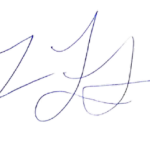Message from the Director
July 9, 2024
Dear Students, Faculty, Staff, Friends, and Supporters of the Clement and Linda McGillicuddy Humanities Center,

It’s been a week since the official start of my two-year term as Director of the Clement and Linda McGillicuddy Humanities Center at the University of Maine. Since arriving at UMaine seven years ago, I’ve participated in a faculty reading group sponsored by the Center, attended performances and lectures by the Center’s invited scholars and artists, followed the inspiring work of the Center’s undergraduate Fellows, and enjoyed the Center’s financial support for my own research. The McGillicuddy Humanities Center has been vital to my academic life on campus, as it has for many students, faculty, staff, and community members. Its broad support of the humanities benefits the entire University, and I am humbled to serve as its Director.
For any good I bring to the Center I must credit the example of Beth Wiemann, the outgoing Director, and the other colleagues I’ve seen serve in the role. I’ve collaborated with them on the Center’s work in the past and paid close attention to their careful stewardship. I’ll rely on their example and their wisdom in leading this most important part of the University. Brian Jansen, the Humanities Specialist at the Center, manages the nuts and bolts of its operations with humor and perspicacity. The exciting things the Center is set to accomplish in 2024-2025 and beyond must be attributed in large measure to his knowledge and industry.
The Symposium theme for the coming academic year 2024-2025 is “From Talkies to TikTok: 100 years of audiovisual storytelling.” Events throughout the year will celebrate the expanding ways we share culture —from cartoons to poems to politics—since the advent of sound in film. As a scholar of avant-garde poetry in Spain, I know how revolutionary a new audiovisual technology can be for scholars and artists or for anybody at any time. In the early twentieth century, poets in Spain positively swooned over the advent of wireless telegraphy and film was roundly championed in avant-garde circles as the most complete and most promising art of the future. The poetry of the period often attempted to equal cinema’s ability to synthesize various senses and temporalities with fascinating, if uneven, results. In our own time, we know that the stories we tell and the ways we tell them —the currents and concerns of art and culture— have been successively reshaped by the technologies of the personal computer, the internet, computer graphics, and social media, to name only some of the most impactful. This year’s Symposium will explore this rich and significant field.
The Symposium serves as an organizing principle for some of the Center’s work and programming, but there will be events and efforts outside of the Symposium theme as well. Even before taking over as Director, I’ve been working assiduously for weeks on 2024-2025 programming. I’m grateful to Beth for her guidance in the process and I’m eager to see this work come to fruition. There is much to anticipate in the coming year, from our Fellows’ research and presentations to faculty projects, film screenings, lectures, exhibits, and performances by noteworthy guests invited to our campus. Watch this space and check the University calendar to keep abreast of all the Center’s events.
All our work is in support of diverse, high-quality research and creative activity at the University of Maine. The McGillicuddy Humanities Center aims to foment the University community’s engagement in the work of humanists and artists with fiscal and operational responsibility and to highlight the vitality of the arts and humanities in our academic community, in our state, and beyond. I hope you’ll join the Center and its many collaborators in celebrating the humanities this year at UMaine.
Warm Regards and Thanks,

Zachary Rockwell Ludington
